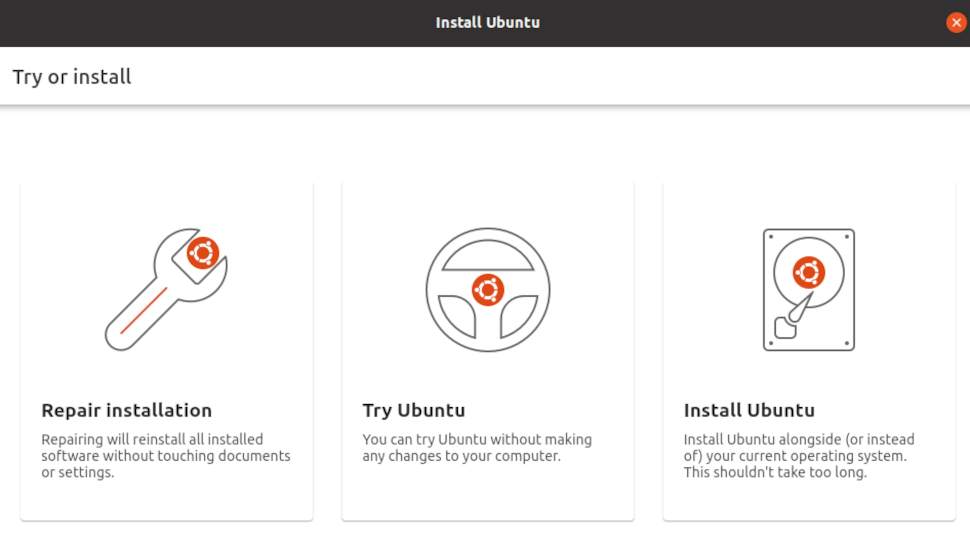Canonical is working on a new desktop installer for Ubuntu 21.10
It could be the default installer in the next Ubuntu LTS release set for 2022

After being in service for well over a decade, Canonical is getting ready to retire Ubuntu’s Ubiquity installer.
“While still functional, Ubiquity hasn’t seen significant feature development for some years and due to its legacy is becoming cumbersome to maintain,” wrote Ubuntu's desktop lead, Martin Wimpress, while unveiling plans for the new installer.
He shared that Canonical has been working on developing a new desktop installer built around Google's Flutter toolkit, and they aim to introduce it later this year with the release of Ubuntu 21.10.
- Check out our collection of the best Linux distros
- These are the best Linux distros for business
- Here’s our list of the best Linux laptops for running Linux
Built with Flutter
Meanwhile, the popular desktop distro’s server variant, Ubuntu Server, has switched to a new installer in the recent past. Dubbed Subiquity, Ubuntu Server’s installer is based on the curtin bare-bones installer.
According to Wimpress, the new installer for Ubuntu Desktop will rely on curtin, just like Subiquity, for a more unified installation experience: “Consolidating the installer for server and desktop on common technologies will mean we can deliver a consistent, robust, installation experience across the Ubuntu family and focus our efforts on maintaining a single code base.”
The design and the desktop development teams at Canonical are working together on the new installer. The new installer will be based on the Flutter open source UI framework from Google. Wimpress shares that the installer will be the fruition of Canonical’s work with Google’s Flutter team to extend the UI library to Linux.
Work on the new installer is already underway and will be available in some form with the 21.10 release. “This paves the way to transitioning to the new installer for the next LTS release, which will be 22.04, due for release in April 2022,” adds Wimpress.
Are you a pro? Subscribe to our newsletter
Sign up to the TechRadar Pro newsletter to get all the top news, opinion, features and guidance your business needs to succeed!
- Subscribe to Linux Format magazine for more Linux and open source goodness
Via: Phoronix
With almost two decades of writing and reporting on Linux, Mayank Sharma would like everyone to think he’s TechRadar Pro’s expert on the topic. Of course, he’s just as interested in other computing topics, particularly cybersecurity, cloud, containers, and coding.
